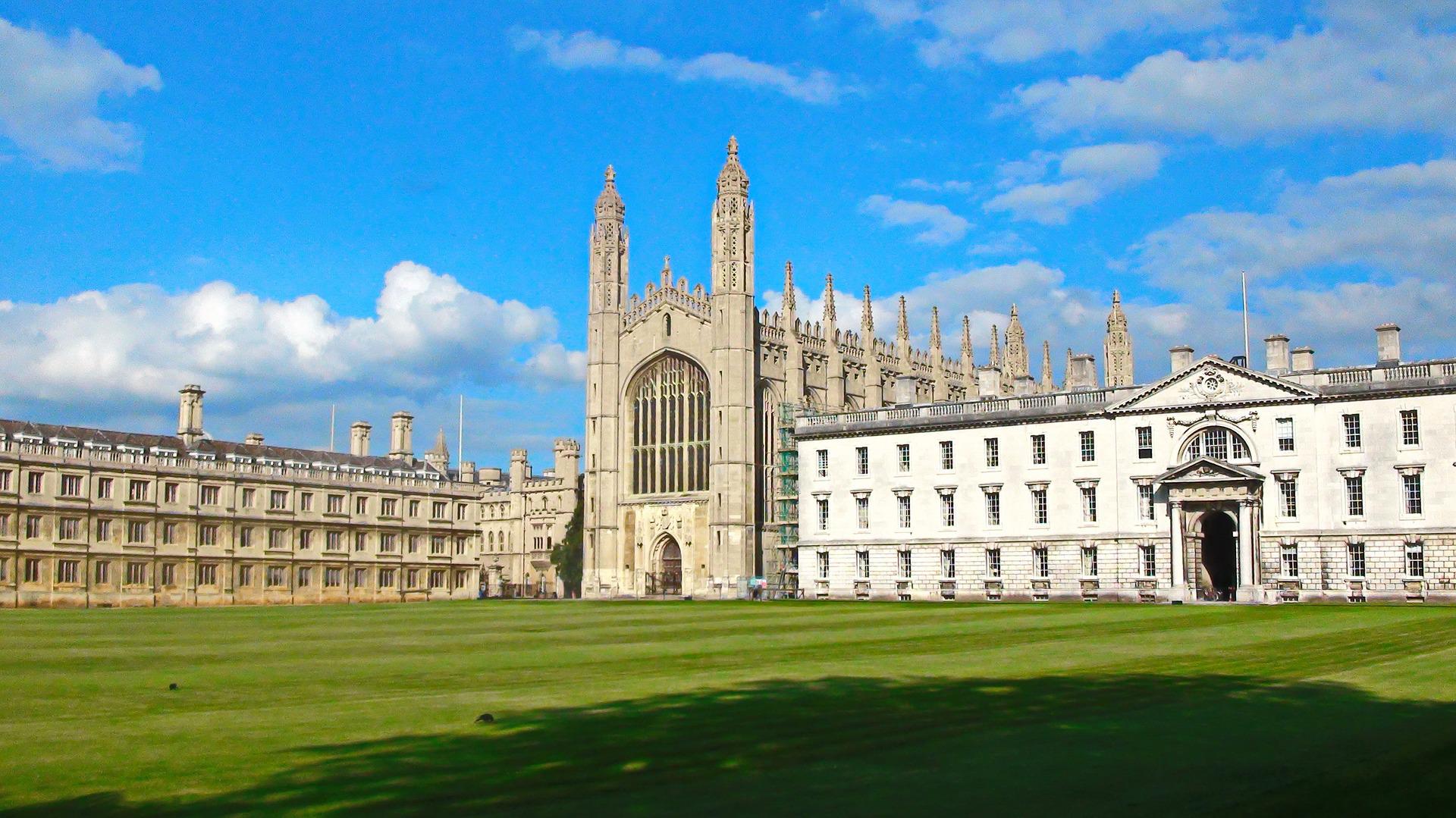Guest Post • Guide to UK Applications
The Oxbridge Collegiate System: Everything You Should Know
POSTED ON 08/31/2022 BY The Red Pen

When I started looking at undergraduate colleges in the UK, their collegiate system immediately appealed to me. Unique to the UK, universities such as the University of Oxford and the University of Cambridge, these colleges serve as your home away from home. My college, Lucy Cavendish, at the University of Cambridge has become my safe space where I can return after an overwhelming day. It’s where I’ve met my closest friends, eaten my best meals and made some of my best memories. So, here’s everything you need to know about the collegiate system.
What is the collegiate system?
In the UK, the collegiate system is a way of organising students. For example, ‘Oxbridge’, a portmanteau for the Universities of Oxford and Cambridge, has several constituent colleges, which often correspond with their ‘Sister Colleges’. Here, rather than only being a member of your course department and the university, you also belong to a particular college as well. These are not separate teaching institutions from the university itself since lectures and practical classes are conducted across the course. Instead, colleges serve as communal spaces where students predominantly live, dine and socialise.
Apart from this, a college’s primary responsibilities include admitting students, providing pastoral support and arranging supervisions or tutorials.
What are the benefits of the collegiate system?
The main benefit of the collegiate system is that it provides more personal contact hours and attention, due to tutorials or supervisions. In addition to traditional lectures, classes and laboratories (for STEM students), all undergraduate students at Oxbridge have weekly tutorials or supervisions where leading experts in your field personally tutor you. Typically, you submit a problem-set or an essay a day before your tutorial and discuss it during your weekly session, where you will discuss, debate and dig deeper into the topic.
Besides this, the smaller community of the college system offers a sense of comfort. The college system is similar to a smaller school where you essentially step into another school year with 100-150 students from your college. Understandably, this provides another layer of familiarity and security.
How do I choose a college to which to apply?
The University of Cambridge has 31 autonomous colleges and choosing just one to which you want to apply is tricky. Identifying, researching and evaluating the parameters step-by-step will guide your decision!
Here are the 10 factors I considered when choosing my college at the University of Cambridge:
1) Academic prestige and competition:
- Academic rigour:
Each year, Varsity, an independent student newspaper for the University of Cambridge releases an unofficial list called The Tompkins Table that ranks the colleges based on the undergraduate students’ scores in each year’s examinations. However, many confounding factors, including legacy students, complicate the Tompkins rankings of ‘prestige’. - Faculty:
As mentioned above, the university centrally delivers a majority of your education. However, your Director of Studies (DoS) and the Supervisors that they appoint are usually from within your college. Supervisions are often with your college peers, who read the same modules. If you would like to work with a particular researcher, it may be worth checking if they belong to a specific college as this may open some doors for you in the future. - Admission requirements:
At the University of Cambridge, entry requirements and additional admission assessments can differ depending on the college. For example, if you are applying to read mathematics and want to choose Churchill as your college, you will need a 7 in Higher Level (HL) Mathematics if you’re studying the IBDP curriculum, along with a written assessment. However, at Trinity, a 7 in HL Mathematics is not specified, but to be eligible to apply to the university, you need a 7, 7, 6 in your HL subjects and are required to take HL Mathematics. While it is important to look into these factors, I would suggest that you don’t dismiss a college just because of its requirements because performing well in these aspects can increase your chances of securing a place. - Competition:
Some colleges are considered more competitive than others as determined by their applicant-to-offer ratio. However, this also depends on the course and year of application. Due to its variability and fluctuating competition, it is difficult to predict an outcome.
2) Eligibility:
There are some demographic restrictions that limit the colleges to which you can apply. For example, Hughes Hall, St Edmund’s and Wolfson College only accept mature students (over 21 years old). Meanwhile, Murray Edwards and Newnham only accept female students. Also, some colleges do not offer particular courses. For example, Girton College offers all courses except Education and History of Art, while Peterhouse doesn’t offer Education, Geography, Land Economy, Psychological and Behavioural Sciences and Veterinary Medicine. Information about the courses offered by each college is accessible on their website.
3) Location:
The Cambridge city centre is where most of the magic happens. You may prefer being close to this historical and culturally fulfilling area, or maybe you’re just lazy like me! Colleges such as Girton and Homerton are almost a 30–50-minute walk away. However, many Cambridge students use a bike, which significantly reduces the commute. In fact, Cambridgeshire is the cycling capital of the UK! Meanwhile, ‘central colleges’, such as King’s and Trinity, attract many tourists and may not be ideal for those who prefer a quieter education environment.
4) History and architecture:
The grandeur of the King’s College Chapel immediately comes to mind when picturing the University of Cambridge. While the lawns here are picturesque, you should know that walking on their ‘Holy Grass’ is strictly prohibited. In comparison, colleges such as Churchill and Fitzwilliam have more modern architecture and are more relaxed about their lawns. Although this is not an essential factor, selecting a college based on its traditions and rules may be a factor to consider.
5) Demographics:
Some colleges at the University of Cambridge are known to be more ‘diverse’ than others, with a larger number of international students from various cultural and socioeconomic backgrounds. Apart from frequent cross-cultural celebrations, diversity is also visible in dining halls, which serve a variety of cuisine. Colleges also differ in the number of students they admit. Clare Hall is the smallest college, with less than 250 students, while Homerton College admits up to 1,192 students. Pembroke College is rumoured to only offer as many seats as they have in their dining hall (132 undergraduates per year). Smaller colleges may be particularly tempting if you are introverted and prefer to keep your circle small!
6) Accommodation:
Colleges vary in the duration for which they guarantee and provide on-campus accommodation.
Not only is there a quality and price difference between colleges, but also within them. Many colleges follow the ballot system, which often depends on the previous year’s academic performance or extracurricular involvement. For example, students who receive a first-class or are involved in the Student Union enjoy the luxuries of en-suite bathrooms, while others share communal showers.
7) Events:
Colleges and their societies host events such as May Balls and Formal Halls at various times during the year and with different accessibility. The annual Trinity May Ball is famous, but paying 200 GBP for one evening may be pretty steep for some. Alternatively, garden parties, such as those hosted by Emmanuel College, for example, offer better value for your money.
8) Extracurriculars:
It is worth checking if the college you are considering has well-established resources for things that match your interests. Even if you skip this, you can always join university-wide societies and clubs. Although all colleges have basic amenities such as a gym, some have better on-site sporting facilities than others. For example, football players from other colleges envy the large grounds of St. Johns and St. Edmunds College. Robinson has one of the best rowing teams and boat clubs. If you don’t mind the distance, Girton College has an indoor pool too.
9) Finances:
Each college operates on different budgets, based on the endowments available for expenditure on events and infrastructure. While this may affect the bursaries provided to students for financial support, the majority of standard students’ fees is tuition paid to the university. Therefore, apart from variations in accommodation and dining prices, the overall cost of studying is approximately similar across colleges.
10) Reputation:
Last but not least, colleges have developed reputations and rivalries over decades (and even centuries) with which most Cambridge students are familiar. For instance, “Trin-Mos”, or mathematics students at Trinity College, are considered more academically inclined, much like their rivals at Christ’s College. Meanwhile, Lucy Cavendish is infamous for its social house parties and radical students.
Inter-college Pool:
The concept of ‘pooling’ standardises your overall likelihood of being admitted to the University of Cambridge. This means that if the college to which you originally applied considers you an impressive prospective candidate but they have no available seats, your application will not be rejected. Instead, the college may recommend you for the ‘winter pool’ so that other colleges within the university can evaluate your application and you may be offered an interview and place at this college instead. Rest assured, equally qualified candidates will receive an offer from the university, even if not at their preferred college.
Open Application:
Even if you can’t choose a college at the time of submitting your application, don’t worry! You can make an open application, where you let the university match you to a college. This allocation helps distribute applicants for each course across all colleges. Your application will be evaluated with the same rigour. Open applications neither increase nor decrease your chances of studying at the University of Cambridge.
Should you require more information and guidance about choosing the right college within the University of Cambridge, please get in touch with the Red Pen team.
Preksha Jain is a guest blogger and current student at the University of Cambridge. She is reading Psychological and Behavioural Sciences and aspires to specialise in education consultancy and consumer behaviour. Preksha graduated the IBDP from Dhirubhai Ambani International School and has worked with firms to host mock Oxbridge interviews, review applications and help students secure admission into some of the world’s top universities.





